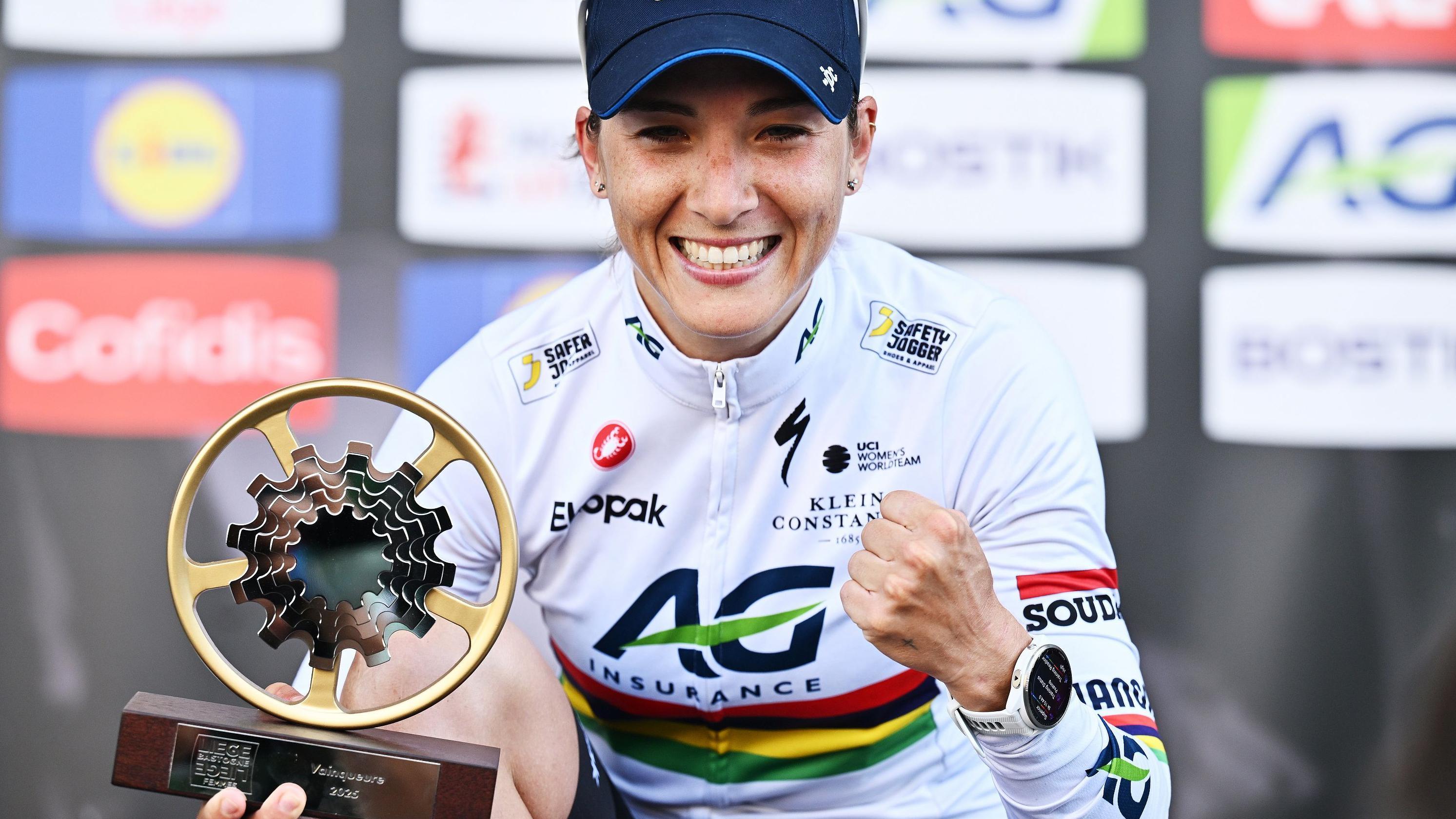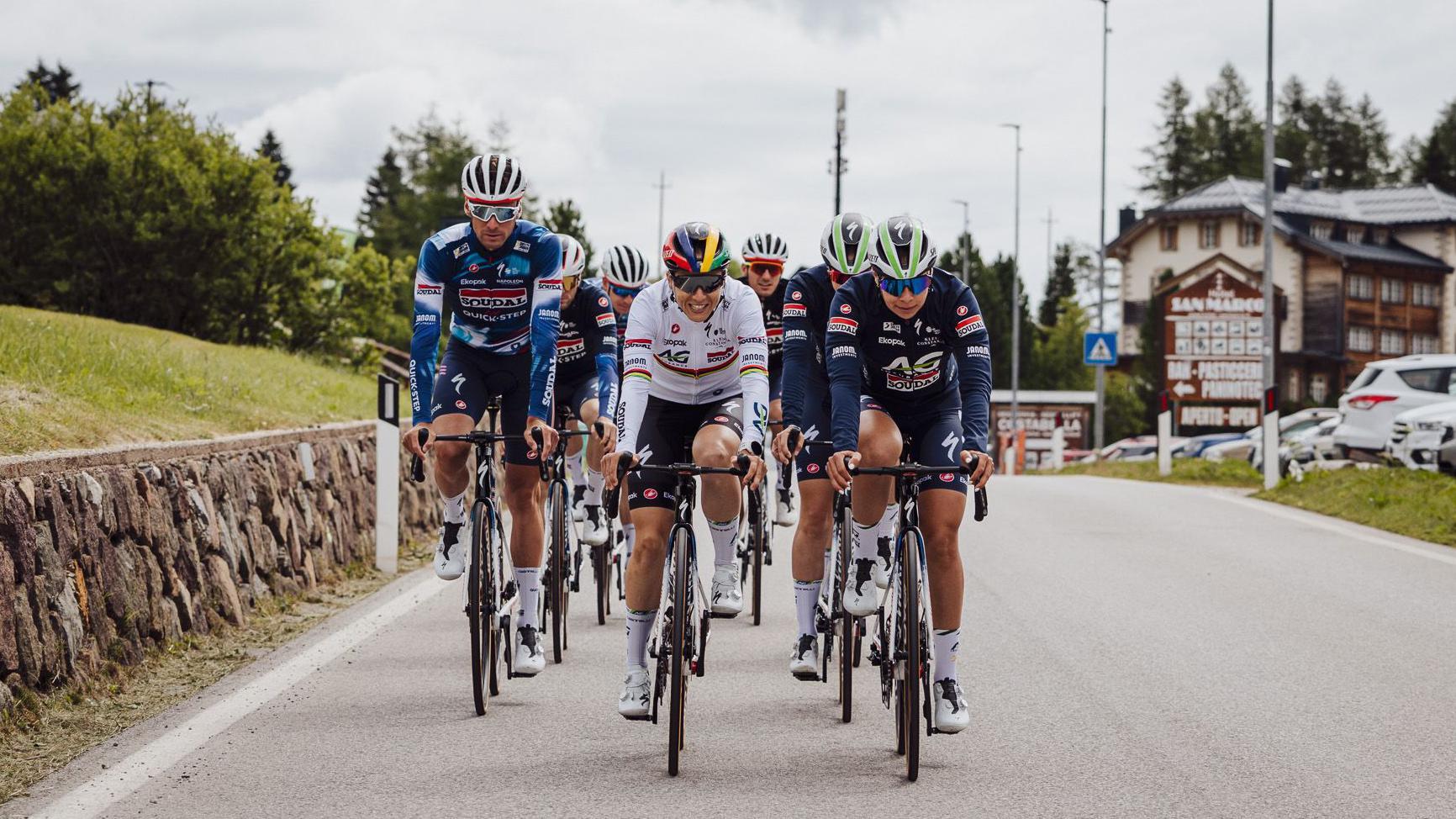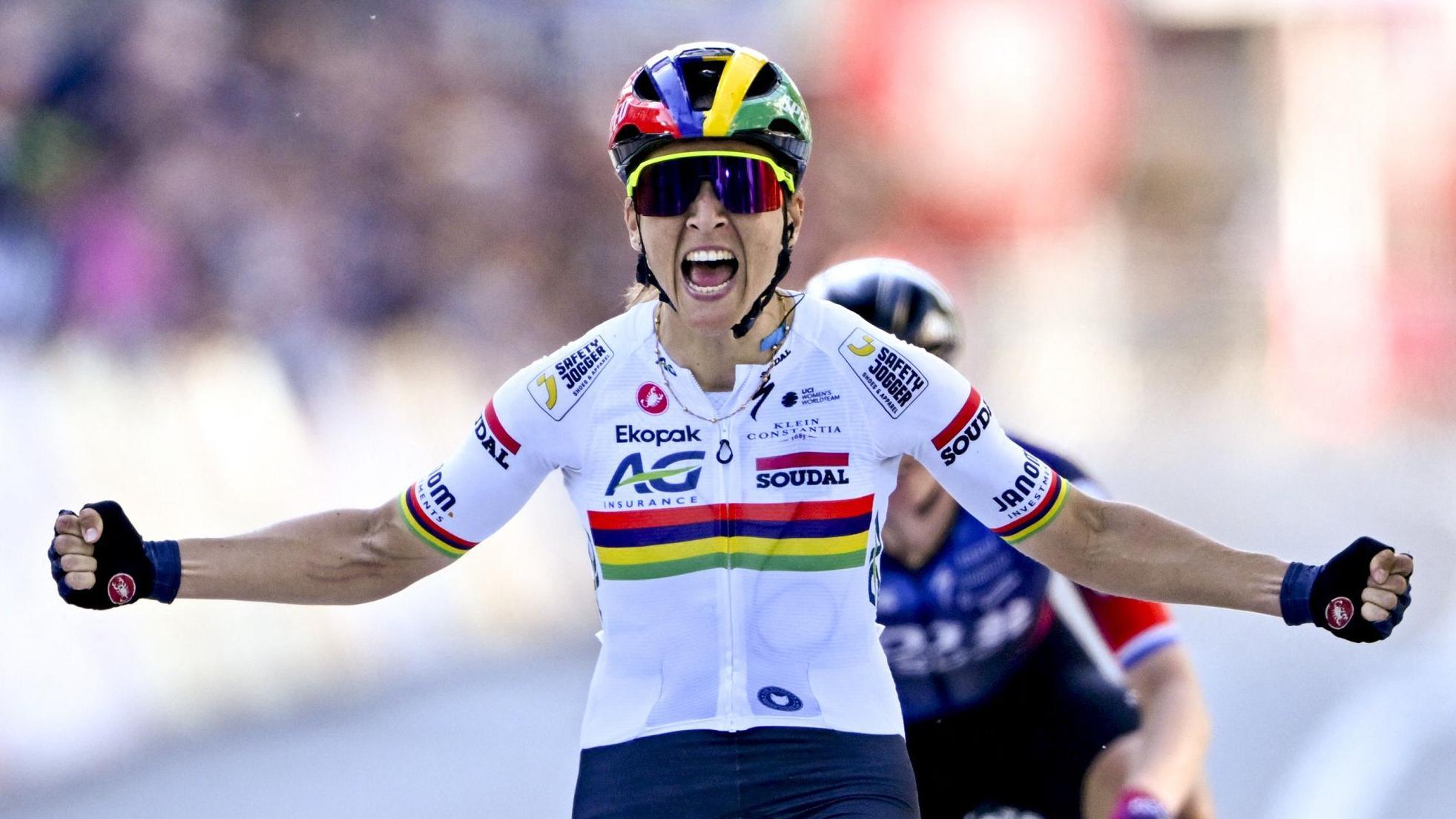As Kim le Court rides toward the start line of the Tour de France Femmes, the athlete is aware that she will embody not only her team but the entire continent of Africa.
However, coming from the small island country of Mauritius, the opportunity to compete against the world’s top athletes once appeared like a far-off fantasy.
“I arrived in Europe during 2015-16, and it was truly very challenging for me. My current teammates still joke about my performance from that time,” the 29-year-old said to Sport Africa.
Tolong support kita ya,
Cukup klik ini aja: https://indonesiacrowd.com/support-bonus/
I was consistently finishing last each day and merely getting by in those races. I despised it.
When I talk to young female cyclists these days, I share that I hail from a small island in the middle of nowhere that wasn’t well-known for a long time, and I succeeded. And if I could make it, so can they.
Le Court refers to her initial time in Europe as a teenager as “a shock to the system,” with both support systems and financial difficulties playing a role in her challenges.
She went back to the continent, settling in South Africa, and it has been a lengthy path since those initial difficulties.
In addition to regaining her competitive edge in Africa, Le Court also achieved wins in mountain bike competitions. Following talks with her current husband, Ian Pienaar, she chose to try road racing in Europe once more.
“I’m really eager for more and for fresh starts,” she said.
It didn’t go well for me in 2015, 2016, but he (Ian) was always aware that I’ve always desired to be part of that place. Naturally, the development of women’s cycling since I was there until now has been significant.
She signed a deal with the AG Insurance–Soudal team for 2024, but true top-tier achievements have only come in the last twelve months following her recovery from a wrist injury.
Moving forward with the ‘next level’ Tour

In July of the previous year – nearly 10 years after her professional debut – Le Court achieved her most significant victory when a tough sprint finish on the final stage of the Giro d’Italia made her the first female rider from Africa to win a stage in one of cycling’s Grand Tours.
In April, she once again made the news, winning the Liege-Bastogne-Liege race and once more becoming the first African woman to achieve this feat.
“It was truly unique,” she stated.
I’m still very surprised by what I’ve accomplished for myself, as a rider, but also for my country, the continent I come from, and particularly my team.
Here is her second effort at the Tour de France, set to begin in the ancient walled city of Vannes in Brittany, northwest France, on Saturday.
Expanded to nine stages for its fourth iteration, the opportunity to vie for the renowned yellow jersey alongside more than 150 other competitors is an enticing possibility.
“The Tour de France is truly beyond anything else,” Le Court explained.
The media focus, the crowds, the pressure—it’s three or four times more intense!
It’s challenging to describe unless you’ve actually been there and experienced it firsthand. Yet, in many ways, it’s a competition that brings out the best in all participants.
There are certainly several stages that I have considered which match my profile.
Le Court fully understands the significance of maintaining good health during these extended, multi-stage races, particularly following several female cyclists being forced to withdraw from this year’s Giro d’Italia due to illness.
There’s no place to hide in the Tour de France, which is something I truly appreciate personally.
It reveals what your work ethic as a rider truly is.
It’s the ultimate competition for every professional male and female cyclist. Everyone desires to participate and aims to claim a stage victory.
Simply being chosen for the team is a significant accomplishment.
A ‘genuine hope’ for Africa

Eritrean cyclist Biniam Girmay has made history in men’s cycling through his notable wins at the Giro and the Tour de France, and Le Court thinks that a groundbreaking stage victory at the upcoming Tour could also make a big difference for the continent.
Currently listed among the top 20 female cyclists globally, she has been recognized as “more than just an athlete” by the younger generation.
“Kim le Court is a genuine source of hope for Africa for me,” said Georgette Vignonfodo, an 18-year-old cyclist from Benin, to Sport Africa.
She represents bravery, determination, and exceptional skill.
She serves as a role model to emulate, a wellspring of motivation for everyone who dares to dream big in the face of challenges.
In Ethiopia, another young person named Tsige Kahsay is also closely following Le Court’s development.
“It brings me great joy when I watch Africans compete and triumph on the global stage through television,” said the 18-year-old who is quickly gaining recognition.
When I encounter Kim, Ashleigh [Moolman-Pasio], and Biniam from Africa, it’s incredibly inspiring.
My aspiration is to become the first Black African queen in cycling, and eventually compete in the Tour de France.
Kahsay and Vignonfodo are involved in the Africa 2025 initiative managed by the UCI, the global authority for cycling, designed to support athletes from the continent in gaining top-tier training and growth opportunities before the Road World Championships, which will be held on African ground for the first time in September in Rwanda.
Cyclists such as Le Court serve as motivation for these young athletes, and obtaining a piece of history at the Tour might become a pivotal point in the development of African cycling.







